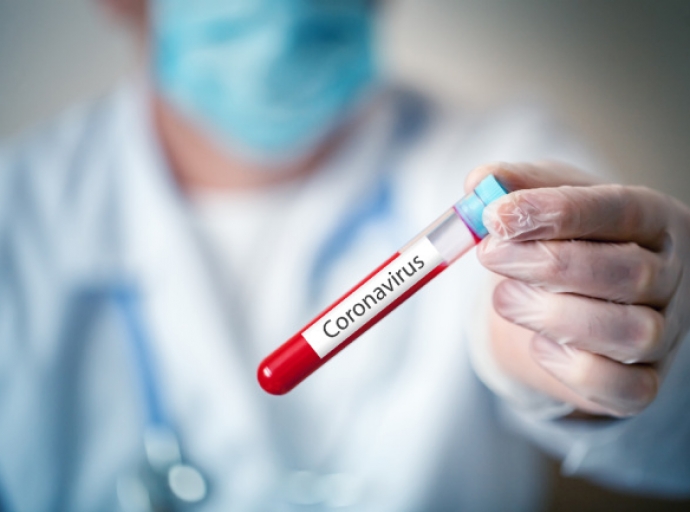
Men with COVID-19 appear to have lower testosterone levels than men without the illness, according to a new study in the Journal of Sexual Medicine.
COVID-19 disease is caused by the SARS-CoV-2 virus, which was first discovered in China in December 2019. The virus has become a worldwide pandemic. Some people with COVID-19 have no symptoms, but others have mild to severe upper respiratory infections and may eventually have organ failure.
The study involved three groups of men between the ages of 18 and 65. The first included 89 men who had been diagnosed with COVID-19. Just over half of these men had mild cases. About a third had “moderate type” illness, and 14% had severe cases.
The second group included 30 men with respiratory tract infections that were not related to COVID-19. The third group included 143 men who had neither COVID-19 nor a respiratory tract infection. The overall average age for all participants was 50 years.
The researchers examined the men’s clinical records and conducted lab tests to determine the men’s hormonal levels. Men whose testosterone levels were below 300 ng/dL were considered to have testosterone deficiency.
The results showed that testosterone levels varied significantly among the groups:
The group of men without COVID-19 or upper respiratory illness had a median testosterone level of 332 ng/dL, above the low testosterone threshold. For men whose respiratory infections were not linked to COVID-19, the median testosterone level was 289 ng/dL. Men in the COVID-19 group had a median level of 186 ng/dL.
The research team further investigated how the severity of COVID-19 illness might affect testosterone levels. They found that men in the severe category had lower levels than the men with mild and moderate cases. However “this difference was not statistically different,” the authors said.
Four men with COVID-19 died during the study period. The average testosterone level for these men was 116, below the median level for their group.
Why might SARS-CoV-2 have these effects on testosterone? It’s possible that the virus could damage the testes, the glands that produce testosterone. Other viruses, such as HIV, mumps, and the Zika virus, have been linked to poorer testosterone production, the authors explained. SARS-CoV-2 might behave in a similar way.
The authors noted several limitations. The study took place in just one hospital, and the men’s semen was not analyzed. They also pointed out that psychological stress can have an impact on testosterone levels. Research has shown that rates of anxiety, worry, and isolation are high in COVID-19 patients.
The authors recommended that healthcare providers monitor male COVID-19 patients for low testosterone and other hormonal changes.
Resources
The Journal of Sexual Medicine
Kadihasanoglu, Mustafa, MD, FEBU, et al.
“SARS-CoV-2 Pneumonia Affects Male Reproductive Hormone Levels: A Prospective, Cohort Study”
(Full-text. Journal pre-proof. Published: November 26, 2020)
https://www.jsm.jsexmed.org/article/S1743-6095(20)31051-1/fulltext#%20
You may also be interested in...
Other Popular Articles

What Is the Average Penis Size?
If you have ever wondered how your penis compares to others in terms of size, you are not alone. Many men are curious to know how their penises stack up compared to the average. Unfortunately, general curiosity can sometimes give way to full-on obsession and anxiety about penis size. This can be an unhealthy and often unnecessary fixation, especially because most men who think their penises are too small have perfectly normal-sized penises.

What Is Jelqing, and Does It Actually Work?
The term “jelqing” refers to a set of penis stretching exercises that some believe can make the penis bigger. Although the practice has gained attention and popularity in blogs and internet forums in recent years, there is no scientific evidence that it is an effective way to permanently increase the size of one’s penis. In fact, in some cases, jelqing may actually cause damage to the penis, so it is a good idea to get all the facts before setting off to try it.

What Is Sensate Focus and How Does It Work?
Sensate focus is a technique used to improve intimacy and communication between partners around sex, reduce sexual performance anxiety, and shift away from ingrained, goal-oriented sexual patterns that may not be serving a couple.

Can Sex Reduce Menstrual Cramps?
The SMSNA periodically receives and publishes ‘guest editorials.’ The current article was submitted by Mia Barnes, a freelance writer and researcher who specializes in women's health, wellness, and healthy living. She is the Founder and Editor-in-Chief of Body+Mind Magazine.
Having sex while you experience menstrual cramps is healthy and can provide significant benefits. While it might not be the first activity that comes to mind when your PMS or period cramping begins, many people enjoy sex to reduce menstrual cramps, experience increased pleasure and benefit from other advantages. Learn more about having sex while menstrual cramps are happening and how it can help your body.

How Long Does It Take the Average Man to Ejaculate?
On average, it takes a man between 5 to 7 minutes to orgasm and ejaculate during sexual intercourse.

Can Sex Throw off Your Vaginal pH Balance?
The SMSNA periodically receives and publishes ‘guest editorials.’ The current article was submitted by Mia Barnes, a freelance writer and researcher who specializes in women's health, wellness, and healthy living. She is the Founder and Editor-in-Chief of Body+Mind Magazine.
Your vagina is a pretty powerful organ. It is a pathway for menstrual blood and babies. It also is a main player in sexual intercourse. You might hear about your vagina’s pH and worry that yours is at risk. Here’s what to know about vaginal pH, including the impacts sex could have.
You are prohibited from using or uploading content you accessed through this website into external applications, bots, software, or websites, including those using artificial intelligence technologies and infrastructure, including deep learning, machine learning and large language models and generative AI.

